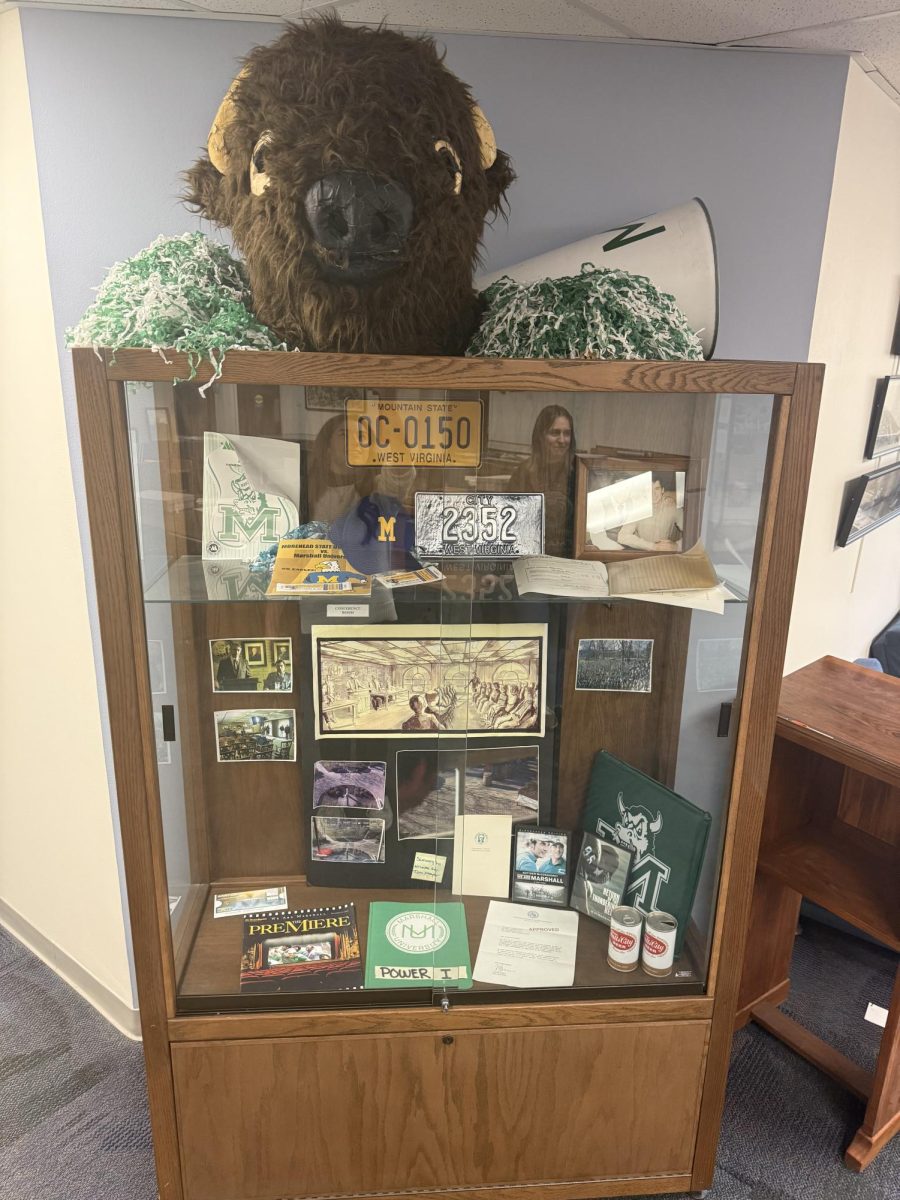Who Is Tom Kromer?
April 19, 2022
Marshall University has acted as a home to hundreds of thousands of students over the years. One student by the name of Tom Kromer attended in 1925. Though Kromer did not graduate, he acts as a very important figure in Huntington’s history.
Kromer was born in Huntington on Oct. 20, 1906. Although he wrote locally for The Herald-Dispatch as student reporter, Huntingtonians seems to have essentially forgotten him. So, the question remains: Who is he and, if he is so important, why has the population forgotten about him?
“It’s just always so shocking to me that you generally don’t hear about him at all,” Dr. Stefan Schoeberlein said. “Spring Hill cemetery and he’s actually buried there. It’s just this really tiny plot that has basically no information on it at all right. There’s no marker of any kind. I think the house that he died in is still around. It’s just like a house that people live in right and he’s like weirdly forgotten.”
Schoeberlein serves as the professor of the Appalachian Literature class offered this semester. He has dedicated his time to researching and re-discovering the life of Tom Kromer.
Tom Kromer worked as a journalist and as an author. He wrote a book titled “Waiting for Nothing” published in 1935. The story follows him as he voluntarily lives the life of a hobo. He tells of what it means to be a homeless man in that time. The young Kromer attended Huntington High School and after his time spent later at Marshall, he decided one day to follow his fascination with the life of a hobo.
“He started-He had this weird trial run for his hobo life where he worked for The Herald-Dispatch as a student reporter and he went sort of undercover as a hobo and wrote about it, and then he became homeless himself and wrote about that,” Dr. Schoeberlein said
The book itself tells of his story, the trials, and tribulations he faces as a homeless man. He writes a sort of tale that is not only truth but also adds a fictional portion.
“In chapter nine, there’s a passage where he is attacked by a man-pig monster. It’s basically a person so degenerated by what he lived in that he becomes this squealing monstrosity that drinks his blood. Right, so that’s clearly not just realism, alright, that’s also him creating this piece of modernist literature. I think that’s one of the elements that’s lost, so it’s interesting to put him in that genealogy of other writers,” Dr. Schoeberlein said.
The class offered a chance for students as well as Dr. Schoeberlein to explore the world of Appalachian literature, specifically Tom Kromer. Michael Martin, an English major, took the course this semester due to his personal fascination with Appalachian Literature.
“This is my first semester as an English major,” Martin said. “I just switched over, so I have been trying to get a lot of English credits. In high school, ironically, an English teacher got me into like my Appalachian identity. So, I was like ‘Appalachian literature, that sounds like a great think tank.’”
The class worked to produce Kromerarchive.org, a website dedicated to exploring Kromer’s history. In the class, the students were split up and told to explore Kromer in whichever way they chose.
“The idea is we want to put something out there where people can discover Kromer in a way that he’s not discoverable right now. And especially now that he’s out of copyright that’s very cool to see,” Dr. Schoeberlein said.
As the semester continued, that plan grew and changed. The goal remained the same, however, which was to bring Tom Kromer back to the light.
“Usually, Appalachian lit is a survey course, and for me it totally isn’t. I told students right from the beginning we will mostly be working on Kromer, and you will be doing the work. I will give you basically half of the class and you’ll decide what you want to do,” Dr. Schoeberlein said.
The students had full creative freedom in the projects they chose. In the beginning, they were not all clear about what they wanted to do, but after some brainstorming, they could develop their projects.
“So originally, we were actually going to try and get some sort of monument I guess for him,” Martin said. “Originally, we were thinking like naming a classroom after him or getting a plaque put up. That ended up falling through for a number of different reasons. Originally, we were going to say exactly where he was published in The Parthenon, but we couldn’t find anything from the time that had his name on it. So, we were like ‘Okay, let’s get a plaque put up somewhere’ and plaques cost like a thousand bucks. So, we ended up on falling on creating a tour that kind of showed the path he went through life as kind of like a living monument almost,” Martin said.
The website had a virtual launch on Apr. 13, 2022 where the website opened to the public. The website includes a pdf copy of Kromers book, as well as a podcast, a virtual tour, an annotated copy of the book and an audiobook.
“Actually seeing it fully formed was actually great to see,” Martin said. “It really is amazing. It does not feel like it was made for a college class. It feels very professional—we have a great looking website. There’s an audiobook recording that sounds very professional I uh-That’s the word that I keep thinking of is professional. We have a podcast that was made that is great.”
The students worked all throughout the semester to produce this website. Even until the day of the launch, they were making tweaks and hoping to have the best product to present.












